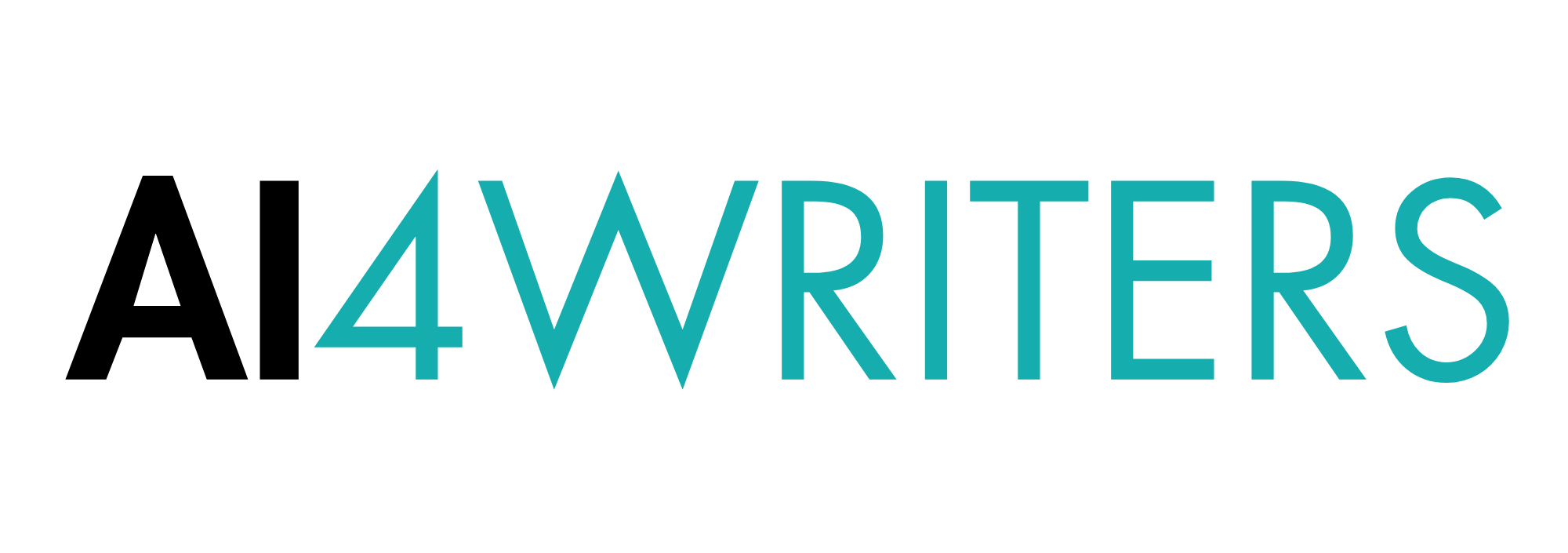Artificial intelligence (AI) is changing the publishing world quickly. It can help authors do research faster or even write entire books. If you’ve been around the self-publishing community lately, you’ve probably heard the terms AI-assisted and AI-generated book thrown around. But what do they actually mean? And why should authors—and readers—care? Let’s explore.
What Are AI-Assisted Books?
AI-assisted books are still very much the author’s creation. The AI is just a helper. Think of it as your virtual writing buddy: it can brainstorm ideas, tidy up awkward sentences, or help you organize your thoughts, but you’re the one making all the key creative decisions.
Examples of AI Assistance:
- Research and Organization: tools like Google NotebookLM can help you find sources, sort through information, and keep your notes in order. That means less time chasing details and more time actually writing.
- Writing Support: programs like ChatGPT can suggest better phrasing, draft a section, or outline chapters. They can even help brainstorm titles or smooth out the flow of your content.
- Editing Help: Quillbot or Grammarly can catch grammar mistakes, flag clunky sentences, and offer suggestions to make your book easier to read.
The important point is that you’re still the primary creator. The AI is there to make the process smoother and faster—not to replace you.
How Readers View AI-Assisted Books
In many cases, readers have no idea AI was part of the process unless the author mentions it. When they do find out, reactions can vary. Some are intrigued and even excited about the idea of AI playing a small role in the creative process. Others remain cautious, wondering whether the writing will feel as authentic or engaging as a book crafted entirely by hand. As AI tools become more sophisticated and seamless, these attitudes are likely to change.
What Are AI-Generated Books?
AI-generated books hand over much more of the writing to the machine. You still set the rules—such as the topic, tone, and style—but the AI produces most or even all of the content.
Examples of AI Generation:
- Full Text Creation: with tools like GPT-4, AI can create an entire book from your ideas or outline. You give the structure; it fills in the details.
- Minimal-Input Writing: some AI systems can write a complete book from just a short prompt—something like “self-help guide for new parents” or “cozy mystery in a seaside town.”
- AI-Driven Storytelling: you can use AI to create plots, develop characters, and suggest twists, making it feel more like a co-author than a simple tool.
Who Owns the Copyright of AI-Generated Books?
This is where things get complicated. The person providing the prompts often holds the rights, but because the AI is doing most of the writing, questions about authorship and copyright are common. U.S. copyright law currently doesn’t allow works created entirely by AI (without human involvement) to be copyrighted.
Comparison of AI-Assisted and AI-Generated Books
| Aspect | AI-Assisted Books | AI-Generated Books |
|---|---|---|
| Human Input | You’re in control | AI writes most of the content |
| Creative Control | You make all major decisions | AI plays a bigger creative role |
| Market Perception | Seen as human-written | May raise questions about quality |
| Examples | Research help, editing, suggestions | Full drafts, plot and character creation |
| Ownership | Fully yours | Legal rights can be unclear |
What This Means for Authors
Both options have their benefits. AI-assisted writing is perfect if you want to keep your hands on every part of the creative process while still using technology to work faster. AI-generated books might appeal to you if you want to experiment, test new genres, or produce work quickly—but you’ll need to think carefully about ownership and how readers might respond.
Can I Use AI to Publish a Book on Amazon?
Yes, you can. But on Kindle Direct Publishing (KDP), there’s an important difference between AI-assisted and AI-generated books. It’s not just about what you call it —it affects how you publish, market, and even keep your book on the platform.
Amazon Now Requires AI Disclosure
Since September 2023, Amazon asks all KDP authors to declare whether their book contains AI-generated content.
- AI-Assisted Books: if AI only helped you brainstorm, edit, or research—and you wrote the text yourself—you can select “No” when asked about AI-generated content.
- AI-Generated Books: if AI wrote any part of the final text in your book, even if you later edited it, you must select “Yes.”
Being honest here is important. Giving false information could lead to account warnings or even having your book removed.
AI-Generated Books Face More Scrutiny
Amazon has been flooded with poor-quality AI-generated books, so they’re keeping a closer eye on uploads. This can mean slower approval times, extra checks for originality, and a higher risk of rejection if your book’s quality isn’t up to standard.
Copyright and Ownership Issues
You must have the legal right to publish what you upload to Amazon. With AI-assisted books, that’s straightforward—you’re the author. But for AI-generated books, things are more complicated. U.S. law currently says AI-only creations aren’t copyrightable. While you may still hold rights to your compiled work, the underlying text might not be protected.
Marketing and Reviews
Some readers want to know if AI was involved—especially for fiction. Being transparent can build trust, but it could also turn away buyers who prefer purely human-written work. There’s no confirmed evidence that Amazon ranks AI-generated books differently in search results, but poor engagement and bad reviews can hurt your visibility.
Reputation Risk
Amazon has already removed thousands of low-quality AI books. If your book appears mass-produced or unpolished, readers may assume it’s one of those and skip it—no matter how good it actually is.
AI-Assisted vs. AI-Generated Books on Amazon KDP
| Category | AI-Assisted Books | AI-Generated Books |
|---|---|---|
| KDP Disclosure Requirement | Select “No” | Select “Yes” |
| Approval Speed | Normal | Often slower due to review |
| Risk of Rejection | Low if quality is good | Higher for low quality or duplication |
| Copyright Ownership | Fully yours | Less clear—pure AI isn’t copyrightable |
| Marketing Impact | Often unnoticed | May attract curiosity or skepticism |
| Reputation Risk | Minimal if quality is high | Higher if quality is low |
| Quality Control | Fully in your hands | Requires strong editing |
| Algorithm & Sales Impact | No known disadvantage | Poor reviews can hurt rankings |
The Future of AI in Book Publishing
In my opinion, the gap between AI-assisted and AI-generated books will likely shrink as the technology improves. We may even see more authors co-writing with AI in ways that feel completely natural to readers. AI isn’t going anywhere—it’s just a matter of how you use it. Whether you keep it as a quiet assistant or let it co-write with you, it’s simply another tool in your writing toolkit. If you choose not to use it, you may find it hard to compete with those who do.




